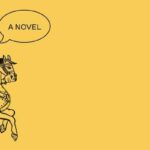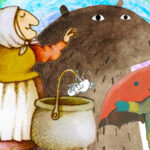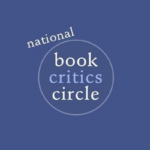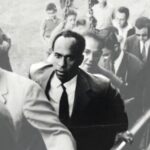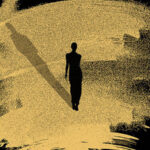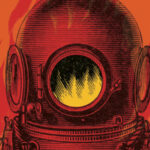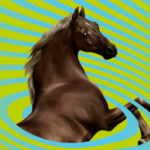A Soft Place to Land: Temim Fruchter on Conquering Self-Doubt Through Writing Fiction
“A requirement of writing well is the capacity to trust yourself.”
It was the fall of 2012 when I started to forget how to play the drums.
This is neither figuration nor exaggeration; I actually, bodily, began to forget. Like a character in a folktale, I was fast losing wisdom to foolishness.
My band was on tour in Europe when the forgetting, which felt at once gradual and sudden, began. We’d take to the stage and greet the crowd like always. But then, whether in Prague or Paris or Berlin or Krakow, I would take my seat behind my forest of drums, suddenly cowering, like what I faced was a mob of hulking and sinister strangers, not a musical instrument. The sticks, once mostly reliable tools, felt bulbous and unfamiliar in my hands.
This great forgetting didn’t come out of nowhere. My connection to the drums had already been tenuous. I’d taught myself to play at twenty-six for the express purpose of joining a band my two best friends were forming. Even before I lost all of my wisdom, the bad postural habits of adulthood prevented me from truly playing loosely or feeling the rebound of the stick on the drum head. More often than not, playing through a single show required the concentration of a long highway drive while sleepy.
But this. This was different.
Even as the drumming was leaving me, other things had been leaving me, too. As we neared the end of the European tour, I began to notice how truly unwell I was. I, a person for whom forgetting to eat has always been a laughable concept, was skipping entire meals, shedding clothing sizes against my will.
I was walking around in a kind of half-gray, hazy and haunted by questions that wouldn’t stop throwing themselves at me. Is this really what you’re supposed to be doing? Do you really think you will ever be good enough at this? Do you even remember what you love? Are you remotely happy? I had spent so much time over the last near-decade trying to be something I wasn’t quite able to be, that I’d fully forgotten who I actually was. I was no longer present in my friendships, not with my bandmates nor with most of the other people in my life. Without my noticing it, I’d become something of a shell, populated only by my anxieties and doubts, the ones multiplying so quickly by the day that before long, they’d replaced whatever else had preceded them.
I had taken my place in the world but my place in the world didn’t want me anymore.When we returned home from Europe, I made the difficult decision to leave the band that had been my life for so long. Or more accurately, my body—the shrinking, forgetful, and shuddery mass it had become—had made the decision for me. I had taken my place in the world but my place in the world didn’t want me anymore and my body knew this with a certainty my brain did not possess.
*
Far from fixing what was wrong, though, leaving the thing that had been the material of my life for so many years left a chasm where almost everything else should be.
For weeks, I stayed inside. I avoided people. I cried, stared at the walls, cried some more. Even though I had accomplished something extraordinary—becoming a drummer in my twenties! Touring and recording with an incredible band made up of people I loved and admired!—I was inconsolable. Not only because the thing I’d irrevocably lost was time. But because, it felt, the thing I’d irrevocably lost was myself.
*
I moved from New York to Washington, DC, where my then-partner lived, in an attempt to start over. To try life again. New York had been unforgiving, I told people, and I needed a soft new place to land. But what I thought might feel like a new start felt more like a violent interruption. Here, in my mid-thirties, I’d abandoned everything I’d built. I was stunted, stuck; bereft. I was in a new town where I knew barely anyone and I no longer understood what I, in the most existential sense, was here for. As a beginning of any kind, it felt farcical. It was much more like an ending, or, at the very best, a sagging middle.
So instead of setting about the business of creating something new from my pile of ashes, I started to experience anxiety that was at once acute and profound. At first, a generalized sense that nothing was quite right, but then an increasingly frequent torrent of intrusive thoughts. Violent thoughts, bad thoughts, but perhaps most sinister of all, the kinds of thoughts that called my very reality into question.
Do you even know what love feels like? said the thoughts. How do you know you’re truly in love? I started to look at my romantic partners sideways, suspicious I’d been duped into something false. Have you ever had an original thought in your life? Do you possess even a shred of integrity? I began to question the most elemental parts of my personhood. Who I spent time with, what I prioritized, even what I did with any given hour of my day. The thoughts, damaging in every kind of way imaginable, were the most damaging in how they began to erode any self-trust I had left.
*
Despite my relatively long foray into percussion, the thing I had actually always been best at was writing. I’d been a distractible kid and a susceptible teenager, excited about culinary school and stage acting and anthropology and visual art and book-making and, very briefly, even the rabbinate. But writing was the thing I’d always come back to. It was something I’d always loved, but even dearer to me: It was something at which I was extremely competent, and sometimes even good. And for me, competency felt rare and precious. Focus, even rarer. I took it where I could.
I’d spent my childhood reading and spinning yarns, and my teenage years writing my angst into bad poems, and my college years writing my most repressed desires into slightly better poems, and my twenties writing lyric essays that were subversive takes on Jewish liturgy and homages to Craigslist missed connections. When I took up the drums, I’d stopped writing altogether. This had never been intentional; it was just something that had fallen away. There had no longer been any time.
So when I decided, in 2014, at a humbled and severely frayed thirty-four years old, to enroll in an online writing class to see if there was anything I still knew how to do at all, I was worried. Most everything else had stripped itself from me. There was a decent chance my ability to write had, too.
In that class—a class called Sex, Death, and Memoir with Lidia Yuknavitch—I did manage to write, and not badly, either. You have range, wrote Lidia in response to something I submitted. I hope you stand up in it. How, I wondered, could I stand up in it? Range, I could do. But the standing up? This seemed harder.
In DC, I had finally, tentatively begun to make friends, but the intrusive thoughts hadn’t stopped ravaging me from the inside out. I had been in talk therapy, but it wasn’t enough. The thing I craved, raw and exhausted from wrestling with my own brain, was for someone to get inside my body and scoop it all out of me.
In an effort to approximate a global outscooping, I tried even more kinds of therapy with more kinds of therapists. Psychology Today became my Tinder, as I became ever more intimate with its catalog. Hypnotherapy, Energy Healing, Somatic Therapy, EMDR, CBT.
Here is something most writers probably inherently understand at some point, but that no one explicitly tells you: A requirement of writing well is the capacity to trust yourself. Perhaps not wholly, and perhaps not even very much at all. But in order to successfully write a story, you need to possess enough self-trust to believe yourself capable of concocting a universe of characters and situations from nothing, or perhaps from a very small seed. And then, enough to govern and navigate them with a decisive pen, leading them toward an ending, or to a next chapter, or toward or away from one another.
At a writing conference a few years ago, I heard a friend give a talk where they mentioned that the Latin root of the word decide means to kill. I had never heard this before, and I couldn’t stop turning it over in my brain—not then, and not since. It felt so extreme. And also, as someone who had always been indecisive, it resonated. To choose one path was absolutely to foreclose all the others. It was all very Sliding Doors. It was also, unequivocally, a kind of violence.
Deciding had always been difficult for me. But now, in my compromised and doubt-ridden state, the prospect of deciding anything was nearly impossible. I could hardly tell what a feeling was, could barely distinguish an original thought from its sinister counterpart. Who was I to believe myself capable of generating material on the page? Of making the kinds of decisions good fiction requires of its creator?
*
I’d found a therapist I liked well enough who understood my predicament. A profound loss of self-trust, she understood, was losing the very ground you’d stood on. There was nowhere to begin. I was operating from that great chasm. My starting place was just the bleak chaos of unknowing.
So she gave me homework. Forget big decisions, she said. Forget even small ones. Instead, she gave me a series of questions and told me to ask them to myself nightly, and to answer them, too. It will feel silly, she said. But it won’t be.
I skimmed the questions:
Is my bed comfortable?
Am I warm enough under my blankets?
Does the pillow support my head?
That night, I gave it a try. My therapist was not wrong: this felt ridiculous, giving voice to the smallness to which I’d been reduced. But I was desperate. I did it anyway.
“Is the bed comfortable?” I asked my dark bedroom. I heard the quality of my own voice, so small and pleading, it sounded as though it expected someone or something to answer back.
I lay very still in the soft dark. My mattress, a Craigslist purchase from a few years back, was actually shockingly comfortable. I had no complaints. It held my body just so, firm and bouncy with just enough give.
“It is,” I said to the dark. “The bed is comfortable.”
A story, after all, is made up of millions of tiny little decisions, and so few of us are certain of anything.I don’t remember if I laughed or if I was simply overcome by the desire to laugh. The silly little therapy homework question had yielded a definitive answer. And answers were on the edge of extinction. I felt an immense sort of relief, just knowing what to say back to the dark.
And on we went, me and the quiet night.
“Am I warm enough?”
I wasn’t quite, so I went to get an extra blanket.
“Does the pillow support my head?”
It did. It really did.
I slept that night, a deep sleep, certain of so little, but certain, at least, of those three things.
*
Life was still painfully constricted. It took me a long time to recover from this period of self-loss. Arguably, I am still recovering. Arguably, I always will be. Certainty is perhaps overrated. It is also, for me, nearly impossible to come by, so I take it where I can. Trust your gut, people sometimes say, and it is only now, in my mid-forties, that I believe I even have such a thing.
But one of the first places I felt safe to experiment back then, raw and ripped of all of my clarity, was in writing fiction. In fiction, the stakes were low. I could steer the character down one path, foreclosing all other options. If it went badly for my character, or if it felt wrong, that was okay. No one would be hurt. Nothing lost. Words and blank word processing pages were abundant. Infinite, even. My character and I could try again.
Not unlike my pillow homework, there was an immense kind of power, I found, in making decisions on the page. Writing forced me to perform a kind of authority I may not have had, but that I needed to bring to my drafts regardless.
As I began to get stronger both off the page and on, I realized that the work I’d been doing to fortify my existential core had also begun to make me a nimbler writer. Making choices—whether for my characters or for myself—was not so rigidly binary that one path would foreclose all of the others. I’d had to integrate the understanding that more than one thing could be true at once. After all, an either/or way of thinking had begun to erase me entirely. Both/and, I would say to myself. Both/and.
I started to understand that the choices I could make on the page were infinite, and as absolutely terrifying as this was, it was also kind of freeing. Both because I could always change my mind, but also because there weren’t really wrong decisions in writing stories. I had become so distanced from my own desires and impulses, that I’d had to re-learn how to make even the most simple decisions.
But by really intentionally practicing this, and in consequently seeing writing stories as a series of tiny decisions, this kind of decision-making became sort of exciting to me. The idea that I got to choose and could be guaranteed that the results of my choice would be neither binding nor catastrophic. I got more and more confident as a person, and began to make more interesting and nuanced decisions as a writer. My characters got to be complicated instead of just stuck. So did I.
To this day, when I face decisions on the page, it can intimidate. It’s still a commitment, and commitment still scares me. Sometimes I make a decision about a story less because I’m certain it’s correct and more because some kind of decision needs to be made. A story or a novel can spend most of its time in gray areas, but even then, a character needs to call her mother or to not call her mother. The weather needs to stay beautiful, or it needs to start pouring.
A story, after all, is made up of millions of tiny little decisions, and so few of us are certain of anything. Sometimes, a decision is simply a good guess. And sometimes, it’s just leaning toward curiosity—if I open this door or this window, what will I find behind it? Sometimes, it’s just asking a simple question of the night or of the page and listening closely for some kind of answer.
__________________________________

City of Laughter by Temim Fruchter is available from Grove Press, an imprint of Grove Atlantic.



